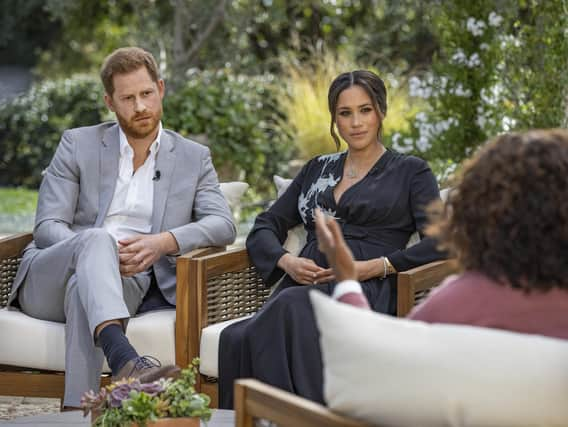Privacy laws play a part in all our lives - Graham Horsman


This was not the only recent activity by The Duchess of Sussex which explores the issues of privacy in her life. In February, she successfully sued Associated Newspapers Limited for misuse of private information and copyright infringement after the contents of a letter that she wrote to her father were shared by the Mail on Sunday and the MailOnline. An appeal by the newspapers has been refused.
Ms Markle's legal team argued that publication of the letter was a misuse of her private information as the letter was about her private and family life, not her public profile or her work. Furthermore, as an "original literary work", it is subject to copyright which had been infringed by its unauthorised reproduction.
Advertisement
Hide AdAdvertisement
Hide AdAlthough it is unlikely that the press would take any interest in correspondence among ordinary members of the public in the way they have with Ms Markle, the laws on privacy and confidence, interlinked with copyright, play a part in our everyday lives.


Privacy
The case BC and Others v Chief Constable Police Service of Scotland confirmed that a common law right of privacy exists under Scots law, in line with a fundamental human right to the protection of family and private life. The case was concerned with whether police officers exchanging WhatsApp messages that fell below professional standards had a reasonable expectation of privacy in those messages. The judge held that they did not, by virtue of the position of police officers and the nature of the WhatsApp group.
The judge did though suggest that ordinary members of the public may have a legitimate expectation of privacy in their communications. This means that there would be a potential breach of privacy if those messages were shared more widely. This position has not, however, been tested, as this part of the case was not subject to an appeal.
Confidence
In Scotland, there is also a common law duty of confidence that can be enforced between individuals. Someone can be in breach of confidence if (i) they were to disclose information that is not already in the public domain but has the necessary "quality" of being confidential, (ii) the circumstances by which that information was initially imparted to someone imported an obligation of confidence to that person, and (iii) the information is used in an unauthorised way to cause detriment to the person who wished the information to remain confidential.
An individual can bring a court action seeking interim interdict (an order stopping someone doing something) for breach of confidence to prevent disclosure of confidential information. That individual can also seek damages or an account of profits if there is some form of monetary loss to that person, or if that person has suffered injury to feelings.
Copyright
With respect to copyright infringement, the law in Scotland is similar to that in the rest of the UK. Any original written work is subject to copyright held by the author of the work. The term "work" extends to written correspondence in the same way as it does to, for example, a book manuscript or song lyrics. Those who, without the consent of the copyright owner, reproduce, copy or issue to the public, copies of the work or a “substantial part” of the work, infringe the copyright, unless they can establish a defence.
Whilst there are exceptions to the rule (eg, works created during the course of employment), and although you may not think it, you probably hold the copyright to many "original literary works" such as correspondence. The principles of copyright apply equally to communications written on paper or electronically.
There are also many other relevant considerations before making a claim for copyright infringement or breach of privacy or confidence. This includes the extent of the breach and the losses that flow from it, as well as any potential defences that may have justified the disclosure.
Graham Horsman is a Senior Solicitor in the Dispute Resolution team at Harper Macleod